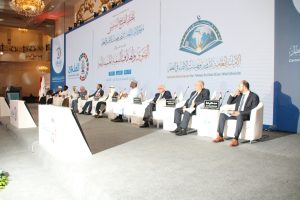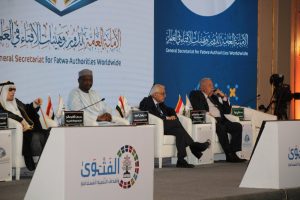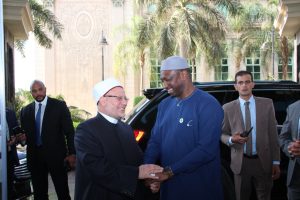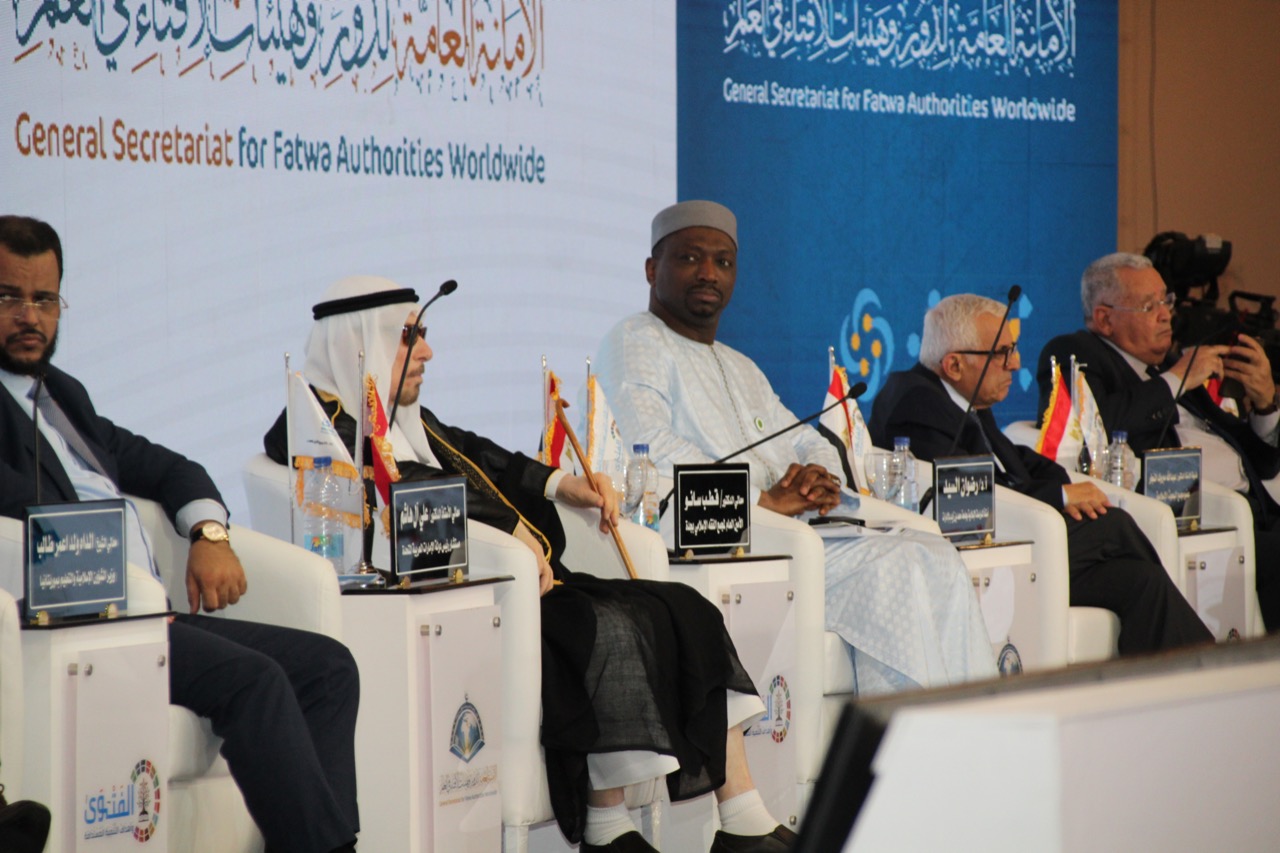
The Secretary General of the International Islamic Fiqh Academy, H.E. Prof. Koutoub Moustapha Sano participated in the first scientific session of the 7th Global Conference on Ifta and Sustainable Development Goals, on Monday 21 Rabi’ al-Awal 1444 corresponding to 17 October 2022, in Cairo, Arab Republic of Egypt.
His Excellency spoke about the role of ifta in achieving the Sustainable Development Goals, starting by giving a brief summary of the reason for the formulation of the Sustainable Development Goals by the United Nations General Assembly, on the eve of its confirmation that most of the countries of the world will not be able to achieve the third millennium development goals by 2015. The eight development goals were (1) eradicate extreme poverty and hunger, (2) achieve universal primary education, (3) promote gender equality and empower women, (4) reduce child mortality, and (5) improve maternal health. (6) combat AIDS, malaria and other diseases, (7) ensure environmental sustainability, and (8) develop a global partnership for development.

Given the global disparity in the implementation of these goals, the UN resolved in 2015 to call on countries around the world to work together to achieve the seventeen (17) goals by the year 2030. These goals, called the Sustainable Development Goals, focus on social development, economic development, environmental development, and political development. These seventeen goals take some of the previous development goals and focus specifically on the environment. These goals outlined in the UN document include (1) poverty eradication, (2) hunger eradication, (3) health and well-being, (4) quality education, (5) gender equality, (6) clean water and sanitation, (7) clean and affordable energy, (8) decent work and economic growth, (9) industry, innovation and infrastructure, (10) reducing inequality, (11) sustainable cities and communities, (12) responsible consumption and production, (13) climate action, (14) underwater life, (15) terrestrial life, (16) peace, justice and strong institutions, (17) contracting for partnership to achieve the goals. His Excellency clarified that these and their previous objectives are all legitimate objectives from the Islamic perspective, since the principles of Shariah are considered eternal and fall within the generalities of the five objectives of Shariah for the preservation of the five known necessities (religion, being, offspring, mind and property) that are addressed by the teachings of Islam through its general and special texts, which makes it necessary for the Ifta bodies to raise awareness and publicize these objectives, to encourage countries and peoples to work towards them and to avoid casting doubt on them.

His Excellency concluded by pointing out that the Qur’an and Sunnah contain many warnings against poverty, misery, mediocrity, ignorance, disease, corruption, injustice, and fanaticism, all of which indicate the importance of combating these phenomena that directly and indirectly hinder the achievement of the sustainable development goals. Moreover, the verses and hadiths that were mentioned urging hard work, justice, education, equality, hygiene, and others, all confirm the importance of the sustainable development goals and the efforts to achieve them.
His Excellency’s speech was very well received by the audience because of its clarity, detail and harmony of ideas.

Read Also
Lastest








